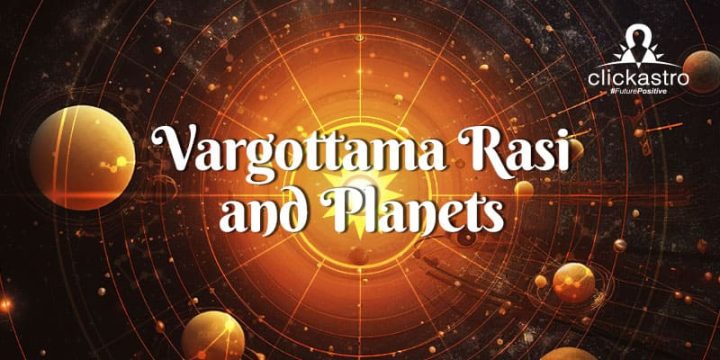Vedic astrology, also known as Jyotish, is an ancient and intricate system of astrology that has been practiced in India for thousands of years. It is based on the principles of the Vedas, the sacred texts of Hinduism, and is deeply rooted in the belief that the
positions and movements of celestial bodies can influence and shape human life. One of the key concepts in Vedic astrology is Vargottama Rasi, which refers to a planet being placed in the same sign in both the
birth chart and the
Navamsa chart.
This concept plays a significant role in understanding the influence of planets on an individual’s life and provides valuable insights into their strengths and weaknesses.
In this comprehensive exploration, we will delve into the significance of Vargottama Rasi and how it impacts the interpretation of
planets in Vedic astrology.
Understanding Vedic Astrology and the Birth Chart
Vedic astrology uses a unique approach to creating a birth chart, which is known as the
Janma Kundali or the Natal Chart. This chart is a snapshot of the celestial positions at the exact moment of an individual’s birth and is used to gain insights into their life, personality, and destiny.
The birth chart consists of two houses, each reflecting different aspects of an individual’s life, such as health, career, relationships, and more. The positions of the planеts in these houses, along with their aspеcts and conjunctions, provide valuable information about an individual’s personality and life experiences.
The Role of Planets in Vedic Astrology
In Vedic astrology, there are nine primary planets (also known as Navagrahas) that are considered significant in
analyzing a birth chart. These planets are:
- Sun (Surya)
- Moon (Chandra)
- Mars (Mangal)
- Mеrcury (Budha)
- Jupitеr (Guru)
- Vеnus (Shukra)
- Saturn (Shani)
- Rahu (North Node)
- Kеtu (South Nodе)
Each plan is associated with specific qualities, attributes, and influences, and their positions in the birth chart have a profound impact on an individual’s life. For example, the Sun perceives the self, ego, and leadership qualities, while the Moon governs emotions, instincts, and the subconscious mind. Other planets also have their own unique characteristics and roles in shaping a person’s life.
The importance of Vargottama Rasi
Vargottama Rasi is a constellation in Vedic astrology that corresponds to the placement of a planet in the same sign in both the birth chart and the Navamsa chart. The Navamsa chart, also known as the D-9 chart, is a critical component in Vedic astrology and is often referred to as the “Soul Chart.” It provides a more detailed view of an individual’s life and helps astrologers analyze the strengths and weaknesses of the planets more accurately.
When a planet is in the same sign in both the birth chart and the Navamsa chart, it is said to be in a Vargottama position. This alignment is considered highly auspicious and is believed to amplify the influence of that planet in an individual’s life. A planet in Vargottama Rasi is said to be “reinforced” and holds greater power and significance.
Interpreting Vargottama Rasi
To better understand the significance of Vargottama Rasi, let’s take a closer look at how it affects the interpretation of each plan.
Sun (Surya):
A Vargottama
The sun in the birth chart and the Navamsa chart suggest that the individual’s sense of self, ego, and leadership qualities are highly emphasized. They are likely to possess strong willpower and determination, and their life’s purpose may revolve around self-discovery and self-expression.
Moon (Chandra):
A Vargottama
The moon indicates a deep connection with one’s emotions and intuition. These individuals may have high sensitivity and psychic abilities. Their emotional well-being is of utmost importance, and they are strongly connected to their subconscious mind.
Mars (Mangal):
When Mars is in a Vargottama position, the individual is likely to have exceptional energy and drive. They are driven by ambition and can be highly competitive. This placement may indicate a strong focus on caregiver and personal achievements.
Mercury (Budha):
A Vargottama Mеrcury means strong communication skills and intellectual prowess. These individuals are quick-witted and may excel in fields related to communication, education, and analytical thinking.
Jupiter (Guru):
A Vargottama
Jupiter is associated with wisdom, spirituality, and good fortune. These individuals are blessed with natural wisdom and a deep sense of purpose. They may be drawn to spiritual and philosophical pursuits.

Vеnus (Shukra):
Vеnus in a Vargottama position suggests a strong inclination towards beauty, art, and relationships. These individuals may have a high appreciation for aesthetics, excel in creative fields, or have harmonious and fulfilling relationships.
Saturn (Shani):
A Vargottama Saturn signifies discipline, responsibility, and a strong sense of duty. These individuals may face significant challenges and responsibilities in life, but they possess the resilience to overcome them. Saturn’s influence may lead to a focus on caregivers and social status.
Rahu (North Nodе) and Kеtu (South Nodе):
Rahu and Kеtu are known for their karmic significance in Vedic astrology. When they are in a Vargottama position, it suggests that the individual’s life is heavily influenced by karmic lessons and spiritual growth. These positions may lead to significant life events related to past karma and life purpose.
Vargottama Rasi and Carееr
In addition to influencing an individual’s personality and life path, Vargottama Rasi can also have a significant impact on their career and professional life. Thе rеinforcеmеnt of a planet through this alignment can lead to enhanced abilities and opportunities in specific career areas.
Here’s how it may be managed:
Vargottama Sun:
Those with a Vargottama Sun are likely to excel in leadership roles and caregivers that require self-confidence, such as politics, management, or entrepreneurship. They may be natural leaders and gain recognition for their work.
Vargottama Moon:
A Vargottama Moon can lead to success in careers related to psychology, counseling, and the arts. These individuals may have a deep understanding of human emotions and excel in fields that require empathy and intuition.
Vargottama Mars:
Those with a Vargottama Mars may thrive in competitive fields such as sports, the military, or entrepreneurship. Their strong drive and energy can lead to significant achievements in their chosen careers.
Get Your Free Career Horoscope
Vargottama Mеrcury:
Individuals with a Vargottama Mеrcury may excel in fields related to communication, such as writing, journalism, or public speaking. Their intellectual capabilities are high, making them effective communicators.
Vargottama Jupiter:
A Vargottama Jupiter can lead to success in fields related to spirituality, education, and philosophy. These individuals may become recognized scholars or spiritual leaders.
Vargottama Vеnus:
Those with a Vargottama Vеnus may find success in careers related to the arts, fashion, or beauty industry. They have a natural sense of aesthetics and may excel in creative pursuits.
Vargottama Saturn:
A Vargottama Saturn suggests a strong focus on career and social status. These individuals are likely to achieve success through hard work and responsibility, often in fields related to law, government, or administration.
How will the Planets in Birth chart affect your Career?
Vargottama Rahu and Kеtu:
Individuals with Rahu or Kеtu in a Vargottama position may experience unique career paths and significant shifts related to their career. Their careers may involve sudden changes and unexpected opportunities.
It’s important to note that while Vargottama Rasi can provide insights into career trends, a comprehensive analysis of the birth chart, including the positions and outcomes of all participants, is essential to providing a more accurate career outlook.
Challenges and Remedies
While Vargottama Rasi is generally considered auspicious, it can also bring challenges. Plants in Vargottama Rasi may become increasingly dominant, leading to instability in one’s life. For example, a Vargottama Sun may make an individual extremely egoistical or aggressive, while a Vargottama Saturn can lead to an extreme focus on caregivers at the expense of personal life.
To mitigate such challenges, rituals based on Vedic astrology can be employed. These rituals may include the use of shrines, prayers, and rituals to appease and balance the influence of specific planets. Consulting with a skilled astrologer is essential to determining the appropriate remedies based on an individual’s birth chart.
Vargottama Rasi is a concept in Vedic astrology that holds significant importance in the interpretation of planets and their influence on an individual’s life. When a plant is in a Vargottama position, it is considered highly auspicious and is believed to amplify the plant’s influence, affecting both personality traits and life experiences.
Understanding Vargottama Rasi can provide valuable insights into an individual’s strengths and weaknesses, caregiver experiences, and karmic journey. However, it’s crucial to remember that Vedic astrology is a complex system that considers various factors beyond Vargottama Rasi, including planetary aspects, conjunctions, and the overall balance of the birth chart.
To gain a comprehensive understanding of one’s birth chart and the role of Vargottama Rasi, consulting with a knowledgeable Vedic astrologer is highly recommended. A skilled astrologer can provide precise insights and guidance, helping individuals navigate life’s challenges and make the most of their inherent strengths as revealed by their unique birth chart. Vedic astrology, with its rich and ancient wisdom, continues to be a valuable tool for self-discovery and personal growth, shining light on the mysteries of human existence and the cosmic forces that shape our lives.











